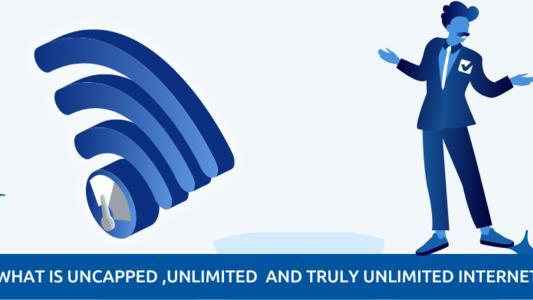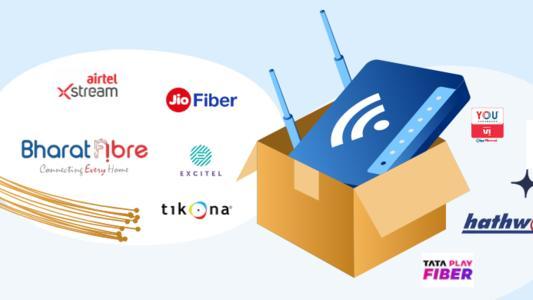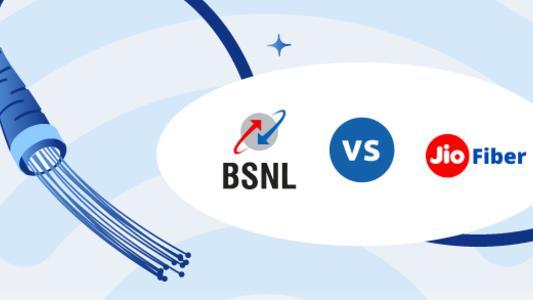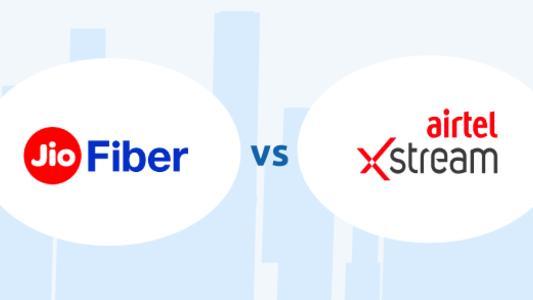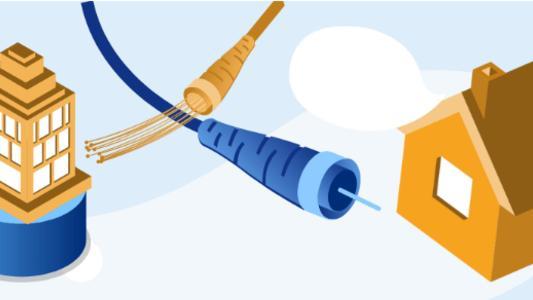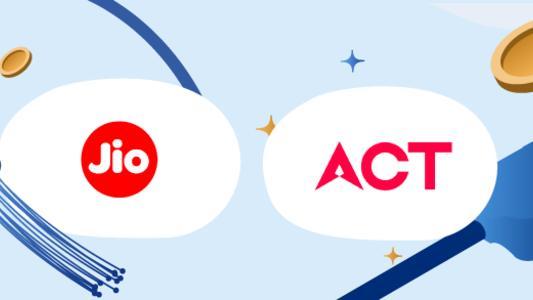Broadband vs Fiber – Availability, Speed, Cost, Coverage, and More
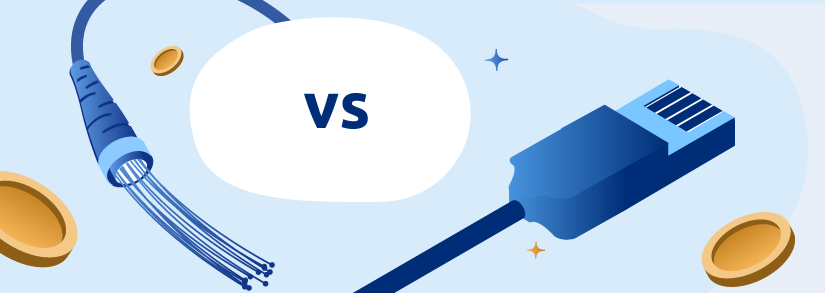
In today’s world, people want a solid, uninterrupted internet connection not just for business operations but also for personal reasons. The internet connection you choose impacts your productivity and efficacy both in and outside your work hours.
There are two (2) major types of internet connections available – broadband and Fiber. These internet connection types vary in terms of their structure, functionality, cost, speed, and even reliability.
Broadband vs Fiber – The Basics
Broadband cable uses the same coaxial cable that brings cable TV into homes. The coax cable’s copper core is insulated with aluminum, a copper shield, and an outer plastic layer.
Coax cable can supply both internet connection and television network simultaneously. This enables service providers to bundle the two services together. However, to access the broadband cable internet, users need to have a cable modem and a cable modem termination system.
Fiber-optic, on the other hand, is considered more advanced. Why? Because it uses small, flexible glass strands to transmit information in the form of modulated light. These thin glass strands of Fiber can carry digital information for very long distances.
Fiber internet connections are still not as popular as broadband cables. The fiber connection installing process can be quite extensive, expensive, and intrusive and require many skilled technicians. Whereas broadband internet is much easier to install, thus making it more readily available.
Broadband vs Fiber – Availability
Broadband cable networks are literally present everywhere. Most businesses have broadband cable installed in their office spaces. Users can establish a fast, reliable broadband internet network for both their business and home simply by calling a local cable company.
On the other hand, it can be safely concluded that fiber networks make the backbone of our telecom and cable industries. Despite this, fiber internet connections are not as easily accessible as broadband cables. Potential users may find it challenging to obtain fiber networks for business in remote locations. However, fiber networks are ideal for larger metropolitan areas.
Speed Comparison
Broadband cable network’s download speed ranges between 10 Mbps and 1 Gbps, and its upload speed ranges between 3 Mbps and 50 Mbps. This internet speed range works well with most small-scale businesses and homes.
Broadband speed can accommodate heavy downloading, gaming, and video streaming. However, as the traffic increases, the network speed slows down. What does that mean? It means that users can expect a 20%+ reduction in internet speed when their other family members get back home from work and turn on Hotstar or Netflix. A Broadband network is, after all, a shared network.
Fiber’s speed is advanced and flat-out faster than conventional broadband cable services. Fiber networks have download, and upload speeds up to 10 Gbps. Many users can access the fiber network simultaneously without affecting the overall speed performance making fiber networks ideal for high-demand uses that need to stay constant (even during peak periods).
Cost Comparison
A decade back, it was clear that the costs of broadband cable networks were cheaper than fiber networks. However, fiber cable prices have reduced significantly in the recent past, and it is now more comparable to broadband prices, though still being on the expensive side.
While the broadband network is primarily determined by the user’s location, TV, and phone services, users can select a combined TV and internet package or a bundle from their service provider to get some extra savings.
The fiber net costs can be more expensive and depend on the user’s usage, the wanted internet speed, and of course, the user’s location. Moreover, installation and activation charges may also be applicable.
Broadband vs Fiber - Reliability
Fiber networks undoubtedly are more reliable and offer many benefits concerning consistency and performance. Users enjoy dedicated lines using fiber networks that protect them from latency/ delay in processing data.
Broadband networks, however, are shared connections. And there could be cases of slow speed during high-volume periods.
Installation Process
All in all, installing broadband internet is way easier and less expensive than installing a fiber connection.
Installing broadband networks require minimal infrastructure and skilled resources enabling households and small-scale businesses to comfortably pay for it or do it by themselves.
Fiber optic internet, on the other hand, requires an entire infrastructure to be implemented for use, which may not be feasible for every household or small business as the overall installation costs shoot up drastically. In furtherance to that, installing Fibernet requires super-skilled specialists and special equipment. Repairs also turn out to be very costly in case of damages.
Broadband vs Fiber Providers in India
The Indian market is the world’s second-largest market for mobile subscriptions. We stand on the 10th rank for the best broadband providers and have several companies dealing with broadband and mobile internet services.
Below is a list of the top 3 internet service providers in India:
- Airtel Xstream Fibre
Airtel, one of India’s leading telecom providers, offers fiber network services through its Airtel XStream Fibre with unlimited data and offers (like getting discounts on OTT platforms like Amazon Prime, Zee5, and more). Airtel also has some of the best broadband internet plans ranging between Rs. 499 and Rs. 999.
- Reliance Jio Fiber
Jio has provided its customers with mobile and internet services at very affordable prices. The company is also one of the best mobile internet service providers in India. Their internet plans are unique and unbeatable and range between Rs. 399 and Rs. 1499.
Jio subscribers get access to OTT platforms at discounted prices on their annual and half-yearly payments. For example, via the Rs. 999 plan, users get a subscription to Amazon Prime, Disney+Hotstar, Zee5, Jio Cinema, Jio Saveen, Voot, ALTBalaji, Sonyliv, and more for free.
- Excitel broadband
Excitel is a trusted internet service provider in India. The company is known to offer ultra-high-speed internet (100 Mbps per second).
Excitel Broadband has zero installation charges for the fiber connection, and all the prices of their services come with exclusive taxes. Their plans range between Rs. 399 and Rs. 699.
Broadband vs Fiber – Which one to pick?
For businesses that require fast internet connections, have more extensive bandwidth demands, and need reliability for essential business operations, fiber networks may be their best pick.
Business users can use fiber networks for both voice and video applications and server and application hosting, all while enjoying the fastest speeds over long distances.
Alternatively, businesses or households that don’t have servers at their locations, don’t have high content needs, and don’t necessarily have mission-critical internet applications, can pick broadband cable for the savings benefit.
Pros and Cons
The major pros of a broadband network include affordable television bundles, widely available, and high internet speeds to cater to small-scale businesses and homes. On the other hand, its cons include slowing down of speed during peak times and less rural availability.
The primary pros of fiber networks include hands down speed, resilience, and reliable services. By nature, fiber remains unaffected by electromagnetic interference, making it much more resilient to outside factors — like proximity to other infrastructure or weather. Overall, fiber networks have only a handful of cons outside high cost and limited availability.
